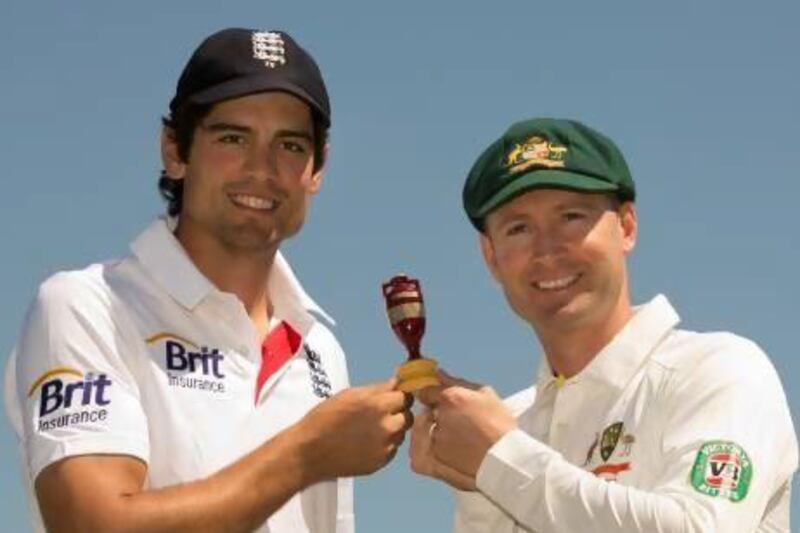If just Australia and England played each other in Tests, would Test cricket still be OK?
This strange, complicated question is probably not going to be asked as much as it should over the next seven months.
In that time the two sides will face each other 25 times, ten times in Tests, ten in ODIs and five times in Twenty20s, first in England and then this winter, in Australia.
Even India and Sri Lanka do not play each other that regularly. But this Ashes glut is both unprecedented and a one-off, to avoid a series clashing with the 2015 World Cup in Australia and New Zealand. But over the next seven months these contests will hammer home a longer-term truth about the future of the international game and specifically Test cricket.
It is not a particularly pleasant one, but it is that increasingly, the bigger, richer full members will play only each other because those are the series that will make financial sense for them to do so.
More than ever over the next years, Test cricket will largely become some permutation and combination of India, Australia, England and South Africa playing each other.
Sri Lanka have already written off a number of Test commitments this year; West Indies did so too with Pakistan, who did not seem to mind too much.
Bangladesh and Zimbabwe play a bare minimum number of Tests as it is. That leaves Pakistan and New Zealand stuck in the middle, willing to play Tests but not big-name enough to draw a big series (unless ties with India change, in which case Pakistan's situation changes).
As long as England have Australia, Australia have India, India and England dislike each other and South Africa have a top side as challenge to the rest, among these four is where Test cricket will be just fine. The rest?
Not that this will really be on anyone's minds as the Ashes begins today at Trent Bridge, Nottingham. England have not been so heavily expected to win this contest since forever, or more accurately, at least the late 70s when Kerry Packer had so depleted the Australian national side by signing up several key players to his World Series Cricket.
On paper those expectations seem justified.
Australia are in the worst strife they have been since the mid-80s, right after the retirements of Greg Chappell, Rod Marsh and Dennis Lillee.
They have a new, internationally untested coach, a captain with an iffy back, an uncertain batting order and a deep, impressive pace attack that struggles to get on the pitch together.
And when they were a better stocked side during the last Ashes in Australia, they were still comfortably beaten by England.
But as often happens in these situations, the kind of cleanse they have just undertaken, might be the kind of thing that often brings a short-term boost.
Lehmann has promised to return Australia to a kind of rootsy, simpler past where batsmen bat big and make hundreds, fast bowlers take wickets and at the end of the day, performances in the bag, they all sit down and share a few drinks.
It might help them for a while, but ultimately the truth that Australia simply might not be producing enough good players right now, that eras of dominance and decline are more beholden to simple cyclical forces than anything else, will begin to count.
England are a better, more settled side there is no doubt and in their own conditions that superiority should tell even more so.
The level of detail that is said to accompany Andy Flower's planning ahead of series is astounding. But they are not overwhelmingly a superior side. If the last two years have shown anything, it is that they are not immune enough to wobbles of their own, to not have a couple of off-days over the course of a Test series.
Only last year Pakistan made them look, for some parts, incompetent in the UAE.
In front of South Africa at home, England were drab and uninspired, though the end of Andrew Strauss's captaincy tenure and the Kevin Pietersen fiasco would have played a role in that loss.
Only earlier this year New Zealand first withstood and then almost toppled them in a series in New Zealand.
It is not outlandish to imagine that if Australia's young fast bowlers can perform to anywhere near the potential that they are said to carry, then England's batting, even with Pietersen's return, will be tested and maybe bested some days.
In any case there is plenty of opportunity between now and early next year for these two sides to become intimately familiar with each other's strengths, flaws, moods and rhythms.
They will get used to it. Perhaps, in the longer term, the rest of the Test-playing world should start getting used to it as well.
Follow us
[ @SprtNationalUAE ]





